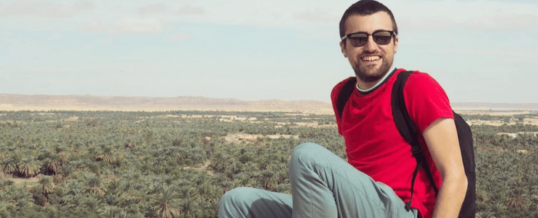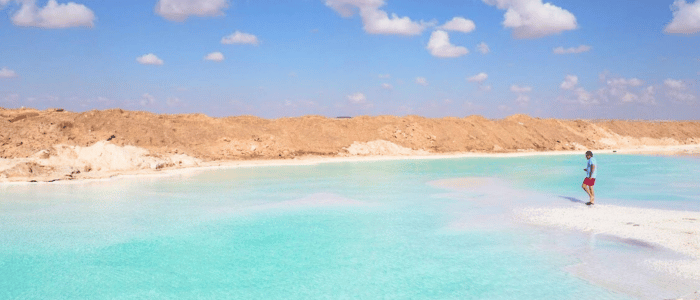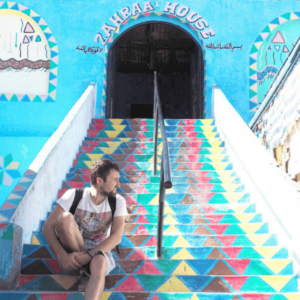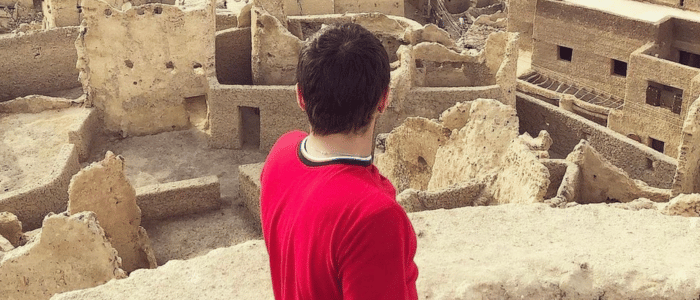
By Alex Stratikis, Autistic Self-Advocate, World Traveler & Founder of Autism Adventures Aboard
Instagram: @autismadventuresabroad
The travel and tourism industry has made commendable progress in fostering accessible and inclusive environments for various travelers. However, the question persists: How can the industry further enhance inclusivity, specifically for autistic travelers? An integral solution lies in actively engaging and listening to the voices of autistic individuals.
Regrettably, discussions around autism often lack the crucial input of autistic individuals, and the tourism industry is no exception. Implementing accessibility initiatives without considering their perspectives can result in measures that fall short of meeting genuine needs. This oversight may lead to initiatives that are unfitting, redundant, or, in the worst-case scenario, off-putting for autistic visitors.

Understanding the diversity of autistic traits is paramount. As a spectrum, the needs and preferences of autistic individuals can vary widely. While generalizations can benefit the majority, it’s crucial to recognize that some may not benefit from certain accessibility practices. Addressing conflicting needs among autistic individuals requires thoughtful responses to ensure a positive experience for everyone.
A growing movement of autistic writers, advocates, and bloggers offers valuable insights that the travel sector should actively leverage. Listening attentively to their concerns, anxieties, and accommodation needs, as well as considering information about the broader community, is essential. Overcoming barriers to encourage more autistic individuals to engage in travel requires ongoing efforts and responsiveness to feedback.
 Adaptability is key to accessible tourism. Businesses may not get everything right initially, but a willingness to respond to constructive criticism is crucial for progress. Ongoing training through certification programs, such as those offered by IBCCES (International Board of Credentialing and Continuing Education Standards), can play a pivotal role. These programs include training from industry experts and incorporate the perspectives of autistic voices, ensuring a holistic approach to accessibility.
Adaptability is key to accessible tourism. Businesses may not get everything right initially, but a willingness to respond to constructive criticism is crucial for progress. Ongoing training through certification programs, such as those offered by IBCCES (International Board of Credentialing and Continuing Education Standards), can play a pivotal role. These programs include training from industry experts and incorporate the perspectives of autistic voices, ensuring a holistic approach to accessibility.
Tourism leaders need to recognize the financial potential should they commit to raising their accessibility and inclusivity standards. While approximate numbers vary from country to country, the Centers for Disease Control and Prevention (CDC) reveal that 1 in 36 children in the United States have received an autism diagnosis—with over 80 million people worldwide diagnosed with autism. This constitutes a significant segment of the overall population and prospective clientele. This is especially important as many autistic individuals actively avoid travel due to various reasons, including concerns about inclusivity.
Examining existing accessibility practices and learning from organizations at the forefront of accessible tourism provides valuable insights. Professionals should broaden their focus beyond autistic children, considering the needs of autistic adults when applying accessibility standards to tourist attractions. Failure to do so not only excludes a substantial customer base but also perpetuates the misconception that their needs won’t be met.

Integrating knowledge about the evolving landscape of accessible tourism into staff training is essential. Actively listening to autistic voices online can reveal meaningful insights and gaps in current knowledge, presenting opportunities for continuous learning. Embracing an open-minded approach when faced with new and unprecedented autistic needs is crucial for ongoing improvement. Ultimately, by incorporating the perspectives of autistic voices and leveraging certification programs like those from IBCCES, the travel and tourism industry can create truly inclusive and accessible experiences for all.
Looking for Ways to Make Your Organization More Inclusive?
Please fill out the form below to get connected with a team member for more information
DEC
